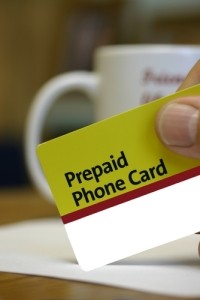A phone card is a prepaid card that the consumer purchases for a certain fee in order to be able to use them as calling cards. The cards are usually advertised as a “certain fee for certain minutes”. The card can be used by dialing the access number which further asks you for your PIN and the destination number you wish to make a call to. The remaining value of the card and other information can be known via the Interactive Voice Response System.
What to look for before purchasing a prepaid phone card?
Taking into consideration the complaints recorded by the consumers, it is wise to conclude the following checks before buying a phone card:
- Make sure the instructions on the card are understood well by you.
- Make sure you have understood the call and porn chat rates provided by the service provider or .
- Make sure you have understood the fine print which is usually written on the back of the card. Such fine print usually mentions the limitations of the card.
- Make sure you have made yourself aware of the fees that will be charged for “hang-up”, post call” or “disconnect”. Do ask the service provider if there is a maintenance fees when you use the card for the first time and subsequent times.
- Check whether the free minutes advertised on the card hold for a single call or can they be distributed over several calls.
- Make a note of the card’s expiry date to avoid lapse of unused minutes.
- Make sure the service provider has a 24 hours helpline number and the number is toll free for you.
- Go with the recommendation of your friends and family to choose a provider with which they have had a positive experience.
What are the common phone cards complaints?
With an ever increasing subscriber base of phone cards, the number of complaints is also on the rise. Some of the common complaints include:
- Personal Identification Networks that do not work.
- Access numbers that remain busy always.
- The service provider going out of business and the card becoming useless thereafter.
- Undisclosed fees and surcharges.
- Undisclosed “Post call” fees.
- Undisclosed maintenance fees.
- Poor connectivity.
- Deduction in balance even when the call did not go through.
- A number of cards expire without a warning. Usually the service provider warns the user when the balance reaches a certain minimum however some providers do not have such a provision.
It is important to know certain do’s and don’ts of buying a phone card. FCC and other agencies have taken actions against few phone card operators. FCC has proposed to penalize the defaulters with $30 million for falsely advertising that the consumers can make calls worth hundreds and thousands of minutes for a marginal fee of a few dollars which was found to be untrue. The users could make calls only for a fraction of the time advertised and the rest of the value of the card was taken as multiple taxes and surcharges which were never disclosed earlier.
It is for these reasons that consumers should be careful to ensure that they understand all the terms and conditions (including the ones in fine print) before shelling out money for a phone card.



